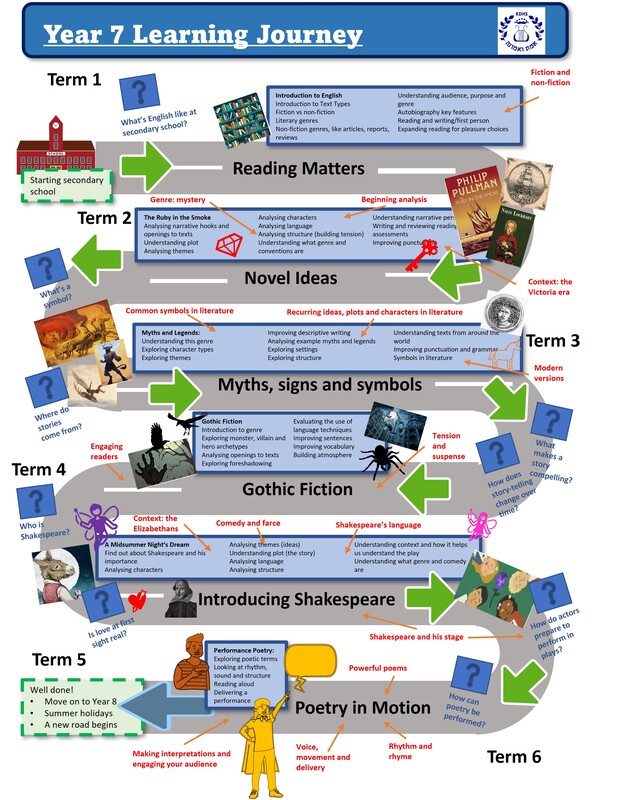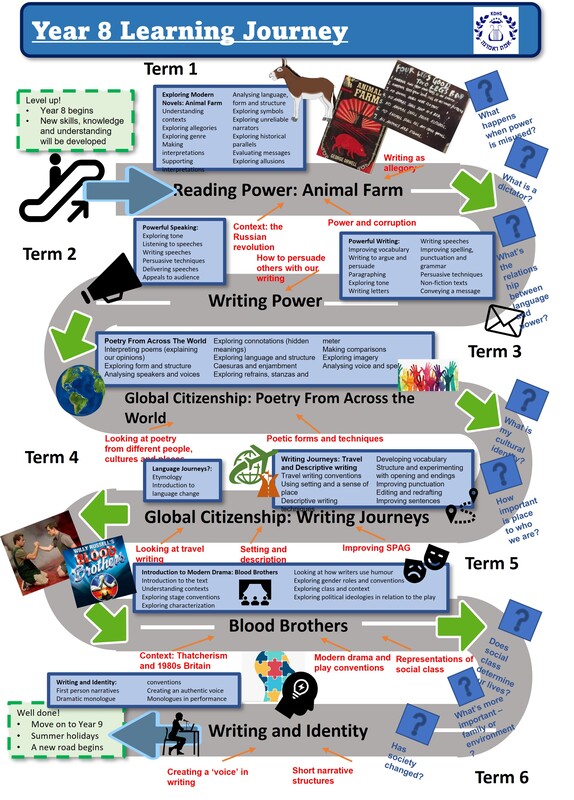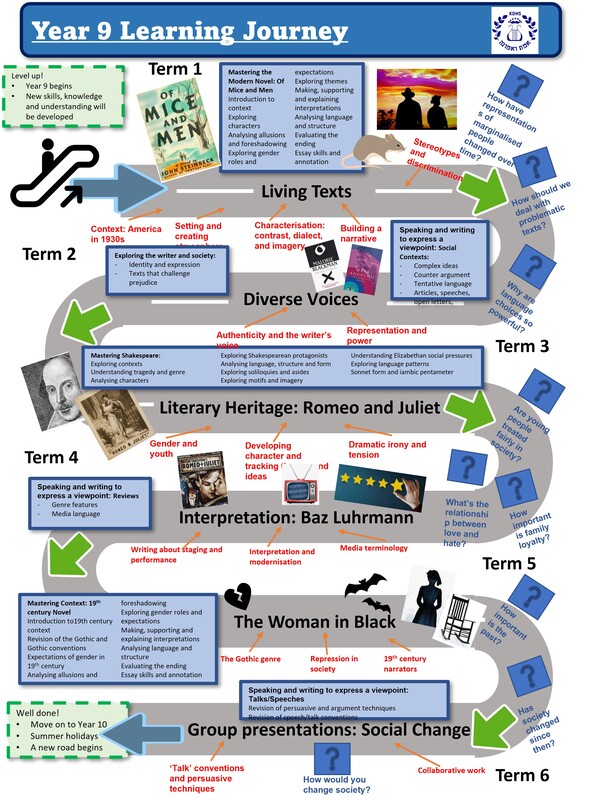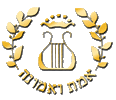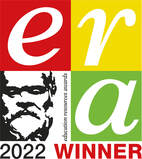ENGLISH
|
Head of Dept: Ms V White
KS5 Coordinator: Miss E Earner KS4 Coordinator: Miss S Uden KS5 Coordinator: Mrs J Dodd Mrs C Hamburger Mr A Kurtz Mr N Page Mr J Ratcliffe Mrs R Silver Mrs J Wickham Mr S Wilson Unlocking and appreciating the power of communication Our primary aim in the King David School English Department is to develop pupils who recognise and enjoy the integral role and importance of communication in the wider world, as well as equipping them with the skills and confidence to become powerful and effective communicators in their own right. We stive to develop successful learners who are literate, creative and enquiring. Students are taught to recognise the inextricable links between writing, reading, speaking and listening in the study of English by experiencing a range of language and literature from different ages, genres, registers and cultures. We want to enable our pupils to respond critically and personally to the texts they study at all levels. Whilst we recognise the value of English as a core subject, we are passionate about encouraging our students to see its value beyond the classroom and examination success. As such, we teach pupils to write and speak in a range of purposeful contexts, developing their sense of responsibility and preparing them for life and work. We also endeavour to provide an environment for pupils to explore their own values and beliefs as well as those of others; to recognise and discuss different viewpoints and interpretations, and to respond with confidence, by developing logical arguments and justifying their own views. The English curriculum at KS3 and KS4:
We follow a spiral structure of learning in which skills are revisited, developed and enhanced, with increasingly complex elements introduced and assimilated for reading, writing and spoken English in a cumulative nature. In addition, substantive and disciplinary knowledge of, for example, English terminology and the socio-historical contexts of texts, is also revisited throughout the curriculum, and opportunities to build upon prior learning taken in order to equip pupils with the ability to engage fully with texts and ideas. Ultimately, we aim to share our love of English language and literature at every opportunity. Students of all ages are very much encouraged to see English as a ‘living and breathing’ concept, taking note of the language they use to communicate and the different forms in which it appears around them. With regular theatre trips, writer visits and creative writing competitions, students at King David experience the power of English first hand. The teachers in the department also want nothing more than for students to share their love of reading; lunch time book clubs and reading lists aim to foster a love of literature. Course Overview:KS3: Year 7
As our pupils embark on their secondary school study of English, we aim to foster the love of literature developed in primary school study and to imbue in them a love of reading texts of all types. They explore how writers create meaning in fiction and non-fiction texts, and learn how reproduce these effects in their own writing. A unit on Gothic fiction provides an introduction to historical literature, and all pupils study Shakespeare in the summer term. KS3: Year 8
The Year 8 curriculum intends to build upon and revisit skills established in Year 7. Literary texts are therefore a little more challenging in content and ideas. Students study a modern novel and are also introduced to modern drama. Students develop their skills in writing and speaking to express a viewpoint. Concomitant to this is their exploration of poetry taken from a range of different cultures, during which pupils are encouraged to explore and express their own identity whilst appreciating and understanding the experiences of others. Self-expression of personal experiences are also taught through a unit on descriptive and narrative writing. KS3: Year 9
Our priority in Year 9 is to support students as they develop more advanced skills and understanding. We explore ideas of society and challenging ideas in 20th century fiction and a range of contemporary texts that reflect diversity. Pupils explore how their own speech and writing can be used to generate and argue complex topics in the modern world. They build on their understanding of older literature and context by exploring the 19th century novel and by studying Shakespeare’s Romeo and Juliet. At the end of the year, pupils work collaboratively to explore ideas of social change. KS4: GCSE
All students study both GCSE English Literature and GCSE English Language. External examinations in both subjects take place in May and June of Year 11. For GCSE English Literature, we follow the AQA exam board. In GCSE English Language, we follow the Eduqas exam board. KS5: A-Level The English Department offers two courses at A Level: English Literature and English Language; the Edexcel specification is studied for both courses. We recommend a minimum grade 7 in English Literature at GCSE level to enrol in either course. English Literature: The study of English Literature is about exploring a range of Literature from Shakespeare and his contemporaries to the present day and provided an opportunity to tackle literary texts in depth and to engage with writers’ ideas. We explore the ways in which writers are influenced by their times, as well as the universality and timelessness of their concerns as part of the human experience and imagination. English Language: The study of English Language is about exploring a variety of language encounters such as spoken language in everyday life; the ways in which language use is shaped by identity; how children learn to use language and how language changes over time. LinksAQA GCSE English Literature (website) for specification and sample assessment material
Eduqas GCSE English Language (website) for specification and sample assessment material |

